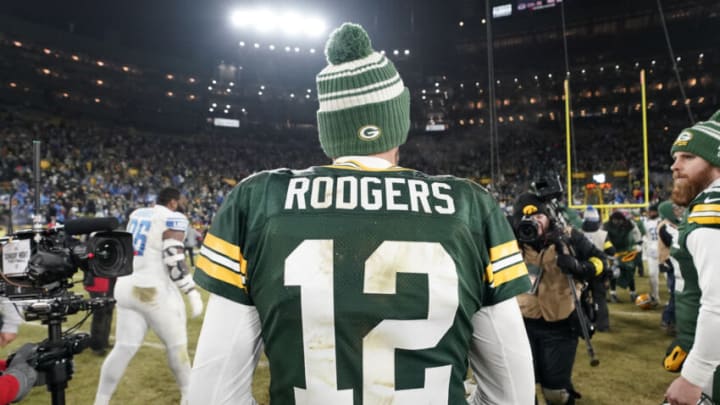It seems that not a summer can go by without the rumors of an Aaron Rodgers trade. We’re now heading into our fourth year of Adam Schefter claiming adamantly that Rodgers will be leaving the Green Bay Packers in the offseason.
After missing the playoffs for the first time in the Matt LeFleur era in Green Bay, if the 39-year-old quarterback is to be traded at any point in his career, it would be now. 24-year-old backup Jordan Love is entering the final year of his rookie contract deal, making it clear that he wants to be the starter to prove his value as a first-round draft pick in 2020. If not to the Packers, then to potential suitors in the future.
The difficulty of the situation for the Packers is that they’re caught between being playoff contenders and being in a full-scale rebuild. If they’re committed to the latter, it would make sense to trade Rodgers to receive significant compensation to expedite the process.
However, just because this trade makes sense in theory, doesn’t make a move from AR-12 realistic. Here’s why:
Trading for Green Bay Packers quarterback Aaron Rodgers is unrealistic.
In the however likely event that the Green Bay Packers declare they are actively shopping quarterback Aaron Rodgers, the phones will be ringing non-stop from every area code in America.
Though when general managers from across the NFL hear the asking price for the 4x MVP passer from Titletown’s front office, interest will surely be lost for the majority of teams who called for him. It’s important to note that we’re not talking about trading a Derek Carr or a Jimmy Garoppolo, we’re talking about trading for Aaron freaking Rodgers.
Regardless of your personal feelings for him, it cannot be denied that he’s one of, if not the most talented quarterback to ever play in the NFL. His “greatness” is a different story, of course, winning only one Super Bowl in his 18-year career back in 2010. However, Rodgers is a substantial upgrade from every other player at the position in the league, with the only exceptions being Patrick Mahomes and Joe Burrow.
This means that the Packers can set any value they want on him in a potential trade. There’s an important aspect of this situation that needs to be taken into account: the Green Bay Packers don’t have to do anything.
AR12 is on the books for the Pack until after the 2026 NFL season. Now obviously, if the franchise were to receive a trade offer for their starting quarterback that they simply couldn’t refuse, they would accept it. As any team would in any sport in the world. It’s just business. That being said, this doesn’t mean that the Packers have to or even want to make a trade for that matter.
But, in the interest of playing the hypothetical game, let’s take a look at the two teams that have been the most tied to landing Rodgers: the New York Jets and the Las Vegas Raiders. The former is in the midst of a full-scale rebuild (which Aaron has made it abundantly clear he has no interest in being a part of), while the latter is on the verge of being a serious contender. Not to mention, Rodgers’ favorite target, Davante Adams, also plays for the Raiders.
What makes a trade intriguing yet very unrealistic for the Jets and Raiders is that the cost it would take to bring in Rodgers would be greater than the benefit of having him as their quarterback. The Packers are looking at the Lions-Rams trade for Matthew Stafford as the template for a potential trade and will certainly ask for an additional draft pick and/or player in return. If you’re the Raiders or the Jets, giving up such a hefty package for a guy who has (at most) two more highly competitive seasons left in the tank is simply not worth it.
